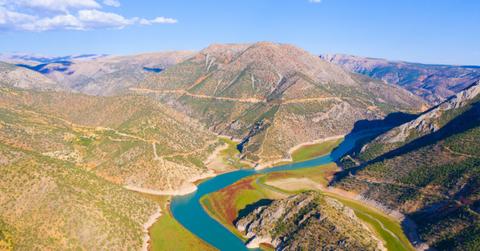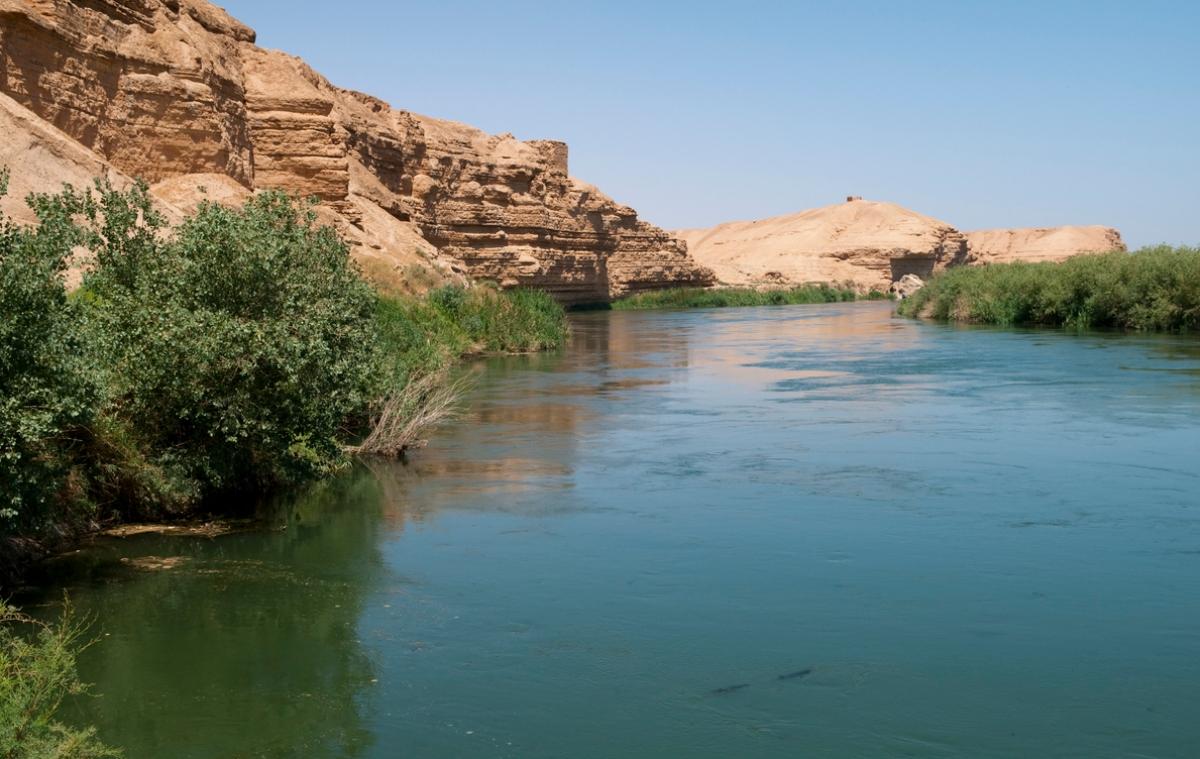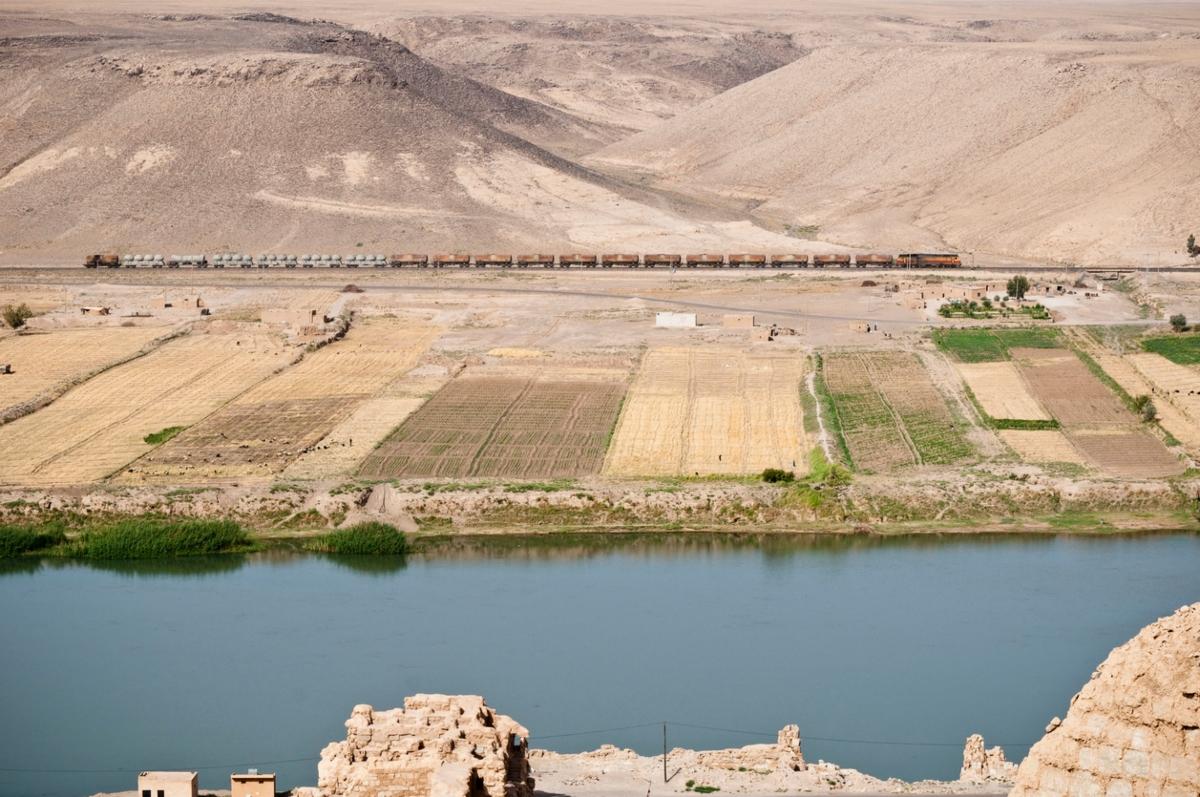Climate Change Is Drying Up the Euphrates River, Threatening Civilizations
Updated Nov. 14 2023, 4:07 p.m. ET

The drying Euphrates River is harming many communities in Syria and other surrounding nations.
The Gist:
- The Euphrates River is the longest river in Western Asia.
- Over the years, the Euphrates River flow has decreased by almost half the average annual flow.
- While the Euphrates River has not dried up completely, it is at risk of drying up due to climate change.
Climate change is certainly devastating people around the world, as extreme weather events like droughts, floods, and extreme temperatures impact humanity's way of life. Water levels rising or falling can cause widespread illness, among other issues. And in Western Asia, the Euphrates River is drying up, threatening civilizations that depend on it.
Why should people be concerned about the loss of water in the Euphrates? Here's more on why the Euphrates is going dry, and the effects that is causing in the surrounding nations.

Where is the Euphrates River?
The Euphrates River flows through Syria, Turkey, and Iraq, while the basin of the Euphrates River serves Jordan, Iraq, Saudi Arabia, Syria, and Turkey.
In these areas, the Euphrates River provides crucial drinking water, as well as water needed to sustain agriculture.
Is the Euphrates River drying up?
Although the Euphrates River hasn't dried up completely, the Center for Strategic and International Studies (CSIS) says that the Euphrates is "at risk of drying up due to climate change."
The Euphrates and Tigris Rivers, which surrounding communities use for drinking water, growing crops, raising animals, and more has fallen to "almost half the annual average annual flow during dry years."
Why is the Euphrates River drying up?
IFL Science reports that in 2021, the Iraqi Ministry of Water Resources issued a warning the Tigris-Euphrates river system was at risk of drying up by 2040. This report blamed "declining water levels and droughts driven by climate change," as per IFL Science. Low rainfall is a part of this, of course, but unfair water policies have made the problem much worse.
Some areas that depend on the Euphrates River are impacted by government regimes that use water as a weapon by withholding water from other nations. In 2021, Syria accused Turkey of limiting water flow from the Euphrates at the Syrian-Turkish border, according to the CSIS. Water flow has also lessened due to Turkish dams located upstream. The longtime political instability of the region has impacted water levels in parts of the Euphrates.

How many times has the Euphrates River dried up?
Though the Euphrates River has not completely run dry, it has experienced drastic swings in water levels over the years. The lowest water levels of the Euphrates have corresponded to years of drought.
IFL Science explains that from 2003 to 2013, the Tigris and Euphrates River basins lost around 34 cubic miles of freshwater, as shown by satellite images. This led to some of the lowest water levels in recorded history for those rivers.
According to the Inventory of Shared Water Resources in Western Asia, the natural annual flow of the Euphrates at the Syrian-Turkish border has decreased over the past 70 years. The prior flow between 1930 and 1973 was about 30 BCM, but data shows the overall water levels decreasing. After large dams were built in upstream Turkey and Syria, between 1974 and 2010, the mean annual flow volume dropped to about 25 BCM.
The Euphrates River drying up has implications for further political conflict as nations fight over water supplies. It also causes an increased risk of disease. As the British Medical Journal reported in March 2023, the drying Euphrates River has forced some residents to rely on contaminated groundwater, leading to the spread of typhoid fever and cholera.
This article, originally published on Aug. 3, 2023, has been updated.